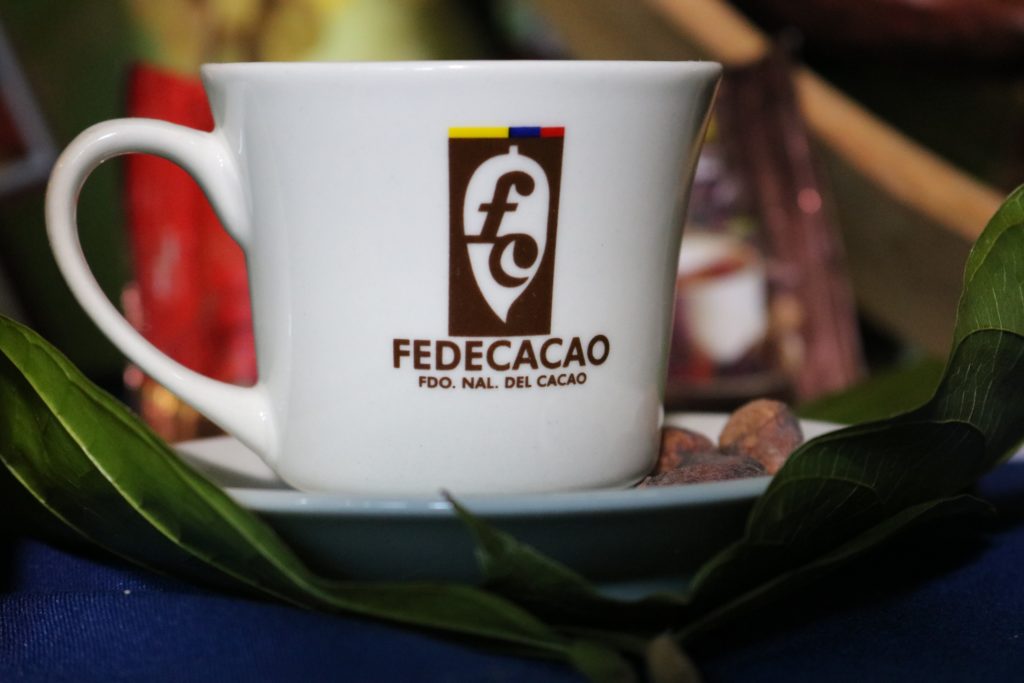By Annie Zamora, Principal Researcher, FEDECACAO
Anyone who has travelled to Colombia may have come across this local saying, which roughly translates as “I like my stories clear and my chocolate, thick.” It highlights the Colombian people’s preference for clarity and blunt talking. The saying also hints at our country’s passion for chocolate – we consume 50,000 tonnes of cacao annually, which is around a kilo per person.
But unlike Europeans, mostly we drink it rather than eat it. Drinking chocolate has a long tradition across the country. We typically start the day with a cup of hot chocolate for breakfast. In the afternoon, we have a tradition called “tomar las onces” (elevenses) which involves drinking chocolate with a snack like an arepa or an almojabana. If you come to the main office of FEDECACAO here in Bogotá in the morning, you can enjoy a delicious hot chocolate with bread.

At FEDECACAO, the Federación Nacional de Cacaoteros, we’re passionate about cacao, but even more passionate our improving the lives of cacao smallholder farmers.
Growing cacao in tropical environments can be difficult. Our farmers must constantly be on the lookout for pests and disease, they must fertilise the soil around the trees and – given most cacao grows near the equator – they must shield their cacao crops from the burning sun. Producing cacao pods also takes time; a cacao tree normally doesn’t reach maturity until it’s at least 3 or 4 years old. Our cacao farmers also live in remote areas with many social issues – many of them been badly affected by the decades-long armed conflict here in Colombia.
Despite these challenges, FEDECACAO has continued to provide support to cacao growers over the country. Since 2013, we have seen production increasing, and the lives of our smallholders have begun to improve. But there’s still much more work to be done.
That’s why FEDECACAO is excited to be part of the “Digitising of cacao production” project, together with our partner organisations in Colombia and the UK. Helping our farmers get the resources, knowledge and skills they need to ensure the highest yields will hopefully start to transform the sector and ensure a sustainable supply of cocoa for chocolate lovers, both in Colombia and around the world.